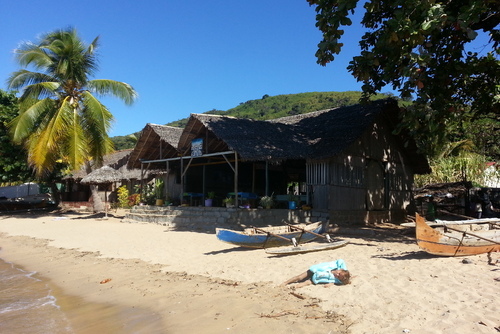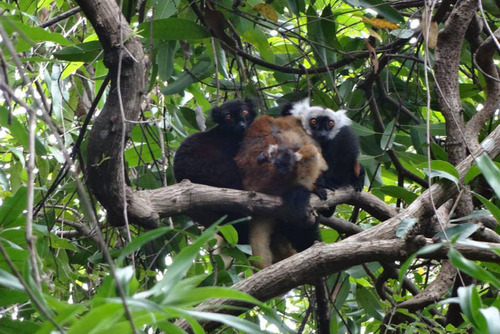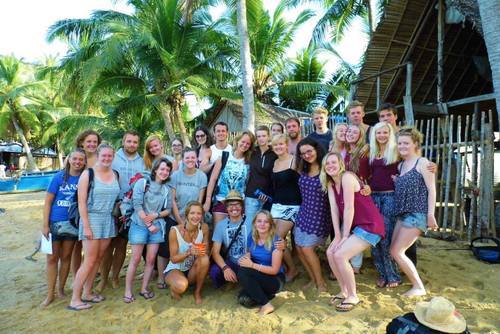The Frontier-Madagascar wildlife conservation project is currently based on the 'scented island' of Nosy Be, famous for its vanilla, ylang-ylang and mangoes! The island is home to three species of lemur: Black lemur, Hawk's Sportive lenur and Clair's Mouse lemur, as well as six species of chameleons.
Whilst on the wildlife conservation project you’ll discover a huge variety of Madagascar's exotic species, as you trek through rugged and remote regions of this hugely exciting island. Working alongside other dedicated volunteers, you’ll help to monitor the distribution and abundance of many groups of animal, and help assess how they are responding to human induced stress factors such as deforestation, habitat fragmentation and other forms of anthropogenic disturbance.
On this project you will directly contribute to important research, aiming to inform local government about how to manage the remaining forests and conserve their invaluable natural assets. You will learn an array of surveying techniques and have a chance to contribute to the to the local community through our education outreach days. But of course it is not all work, and after a hard days trekking and exploration you can always take advantage of the camp’s beach front location and relax on the golden beaches, snorkel in the crystal clear waters or play football against the local village!
WHAT WILL I BE DOING?
The main aims of the programme are to assess the biodiversity in this little-studied area and compare different habitat types and the effects of human disturbance, which may take several forms. We hope to gain insights into how each species, or family of animals is responding to human induced habitat modification and other anthropogenic stresses. It is our aim to discover which species are able to adapt and cope with human interaction and which species may be intolerant to any form of disturbance. By helping us to find out which species are most vulnerable to human disturbance, we can help design specific conservation action plans for better conservation management in the future, and inform the local Ministries responsible for managing the forests.
Our current projects involve carrying out extensive surveys of the local Mammals, Birds, Reptiles and Amphibians that exist in the surrounding forests. These surveys are conducted in a variety of habitat types, ranging from primary forest to plantation type habitats along a gradient of human disturbance. Our survey techniques range from setting up canopy or pitfall traps, active searches during both the day and night and behavioural surveys to collecting morphometric data on Chameleons and Snakes and learning how to record Birds by identifying their calls. In addition we will also be doing mapping of vegetation, assessing disturbance and resource-use in the area to build up an accurate picture of resource use. For more details on our specific projects and methods, as well as our results so far please see our most recent Science Report.
If this is your first time doing conservation work, don't worry! It will only take a short while for you to feel totally at home on camp and confident with the science work. Although the work is intense you'll find that living in such a beautiful and inaccessible environment alongside friends who share your passion for conservation will be the experience of a lifetime!
You'll find your team to be a fun, dynamic mix of ages (usually between 18 and 25, though no age limit applies), and experiences, with members who all share a passion about travelling in developing countries and saving endangered life. Your staff will be young, friendly individuals who are highly experienced in their field and many may have volunteered on a Frontier project earlier in their career.




